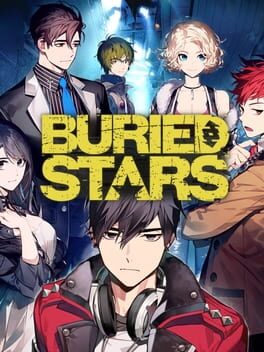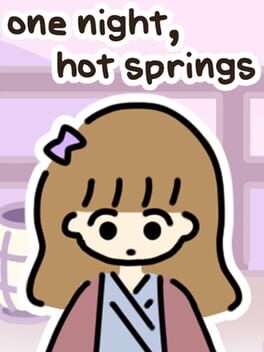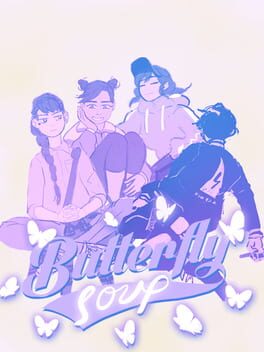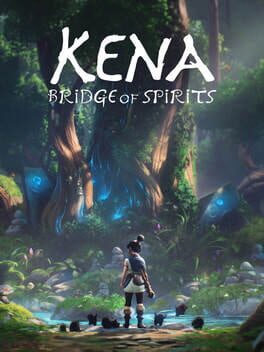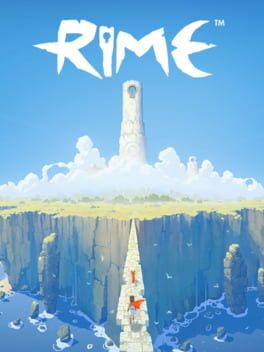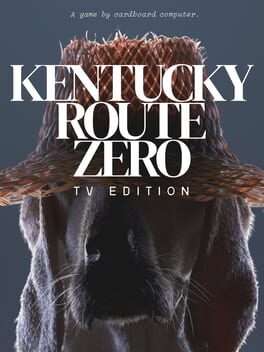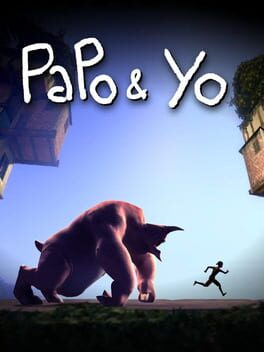AvianAviator
7 reviews liked by AvianAviator
Buried Stars
2020
It's rare I hit a point with a game where I'm like "there's so much potential here that I almost can't blame it for falling short", but here we are.
In terms of "pressure-cooker survival VN", I think Buried Stars has a fantastic setup - the top five contestants in an idol reality show, plus a floor director, trapped inside a collapsed building, waiting for rescue in six hours, and most crucially still having access to Twitter is just [chef's kiss]. Then it mixes in an "I Know What You Did Last Summer"-style murder threat and you've really got a stew cooking. It's helped by a pretty solid soundtrack and some great production values and art.
But goddamn if the remainder of the game isn't just it kneecapping itself over and over. The conversation system is basically extended trial-and-error; you have no idea what topics will increase your sanity, or decrease it, or increase/decrease your rapport with the other characters, or unlock a profile that you'll need to unlock a rapport event that you'll need to unlock the true ending... etc. etc. etc. Then the pacing takes a massive hit in the middle third of the game, and by the time it recovers you're almost at the end anyway.
When it comes to the story and characters, the game's got a great setup for a story about fame, fandom, social media, and the pressure to be someone you aren't, but except for a few good moments, it doesn't really do all that much interesting with it. I got more out of little flourishes like how the game will let you argue with people on Twitter for absolutely no benefit (and in fact it will damage your sanity meter) more than I got out of some of the main characters' arcs.
But more disappointing than any of that - and worsening all of it - is the localization. It's bad! I feel bad saying that because I know translation and localization is really damn hard, but this is bad in that it doesn't seem to have had any kind of editing pass done on it by a native speaker. There's plenty of sentences that were clearly translated out of context, and many many more that are just flat and awkward. At its worst, the game will throw a timed choice at you where both of the options are almost word salad. That's the exception, not the rule, but it's the kind of thing you only have to see a few times before it sours you on the whole experience. It also makes it harder to connect to the characters when their dialogue is a mess, because it creates a low-level stress of understanding what they're trying to say that makes it tough for any of it to land emotionally.
If you speak fluent Japanese or Korean, I'd recommend this game - I think the production values and strong concept outweigh the pacing issues. If you speak English, well, watch some YouTube videos of the start and decide if you can still enjoy the game as it is.
In terms of "pressure-cooker survival VN", I think Buried Stars has a fantastic setup - the top five contestants in an idol reality show, plus a floor director, trapped inside a collapsed building, waiting for rescue in six hours, and most crucially still having access to Twitter is just [chef's kiss]. Then it mixes in an "I Know What You Did Last Summer"-style murder threat and you've really got a stew cooking. It's helped by a pretty solid soundtrack and some great production values and art.
But goddamn if the remainder of the game isn't just it kneecapping itself over and over. The conversation system is basically extended trial-and-error; you have no idea what topics will increase your sanity, or decrease it, or increase/decrease your rapport with the other characters, or unlock a profile that you'll need to unlock a rapport event that you'll need to unlock the true ending... etc. etc. etc. Then the pacing takes a massive hit in the middle third of the game, and by the time it recovers you're almost at the end anyway.
When it comes to the story and characters, the game's got a great setup for a story about fame, fandom, social media, and the pressure to be someone you aren't, but except for a few good moments, it doesn't really do all that much interesting with it. I got more out of little flourishes like how the game will let you argue with people on Twitter for absolutely no benefit (and in fact it will damage your sanity meter) more than I got out of some of the main characters' arcs.
But more disappointing than any of that - and worsening all of it - is the localization. It's bad! I feel bad saying that because I know translation and localization is really damn hard, but this is bad in that it doesn't seem to have had any kind of editing pass done on it by a native speaker. There's plenty of sentences that were clearly translated out of context, and many many more that are just flat and awkward. At its worst, the game will throw a timed choice at you where both of the options are almost word salad. That's the exception, not the rule, but it's the kind of thing you only have to see a few times before it sours you on the whole experience. It also makes it harder to connect to the characters when their dialogue is a mess, because it creates a low-level stress of understanding what they're trying to say that makes it tough for any of it to land emotionally.
If you speak fluent Japanese or Korean, I'd recommend this game - I think the production values and strong concept outweigh the pacing issues. If you speak English, well, watch some YouTube videos of the start and decide if you can still enjoy the game as it is.
Butterfly Soup
2017
Perhaps most notable for its cast, who are so goddamn extra I couldn't help but be endeared to them, even as the humor threatened to swerve into 'wow, so quirky!' That being said, the story they inhabit is woefully disjointed, bouncing between buffooneries and serious subject matter which isn't meaningfully addressed. The resolution of the story is sweet and delightful but left major subplots unaddressed. Even as I yearn for a more balanced narrative featuring these characters, I can still celebrate this game as a product of an independent creator's vision, discussing marginalized intersectional identities. Absolutely still worth checking out.
I had an ok time with Kena, but it is marred by quite a few frustrations. It is really visually appealing, but I didn't find much to like in the gameplay and exploration.
The world of Kena is really cool, with a lot of interesting, detailed environments to explore. They are definitely channeling Spirited Away and Princess Monoke -- plenty of abandoned areas and corrupted nature. These environments are great to explore, with fairly simple linear paths leading to more open areas for you to explore.
Most of the puzzle and traversal mechanics are just... bad...
Things that always have the same outcome (seeds for summoning your rot avatar thing) are triggered in arbitrary ways, so you aren't planning and solving puzzles, you are just wandering around interacting with stuff.
Other mechanics (like the flowers you can teleport to) have arbitrary rules for when they can be activated, so the puzzle is "find where to stand to make this work" rather than "use teleportation to traverse the level."
It feels like most of this stuff was implemented without targeting a coherent design or player experience.
Character visuals are pretty hit or miss for me. Most of the masked characters have really cool designs, and the woodsmith especially is very evocative and unique. There are quite a few animations (Kena's run?) that don't hold up and I don't like the Rot creatures Kena controls at all. Like the environments, they are pretty clearly inspired by Spirited Away (the soot motes). I really don't like the explicit, tryhard, cuteness of the Rot, unfortunately. They are somehow robbed of any charm they may have had.
There are a few character driven stories woven through the game, and for the most part they are interesting and somewhat emotional. Simple stories of loss and acceptance. The final of the three tales is, unfortunately, the weakest -- it doesn't quite succeed at tying it all together.
All the characters are fully voiced. Two of them are really well done (the smith and her assistant), but I found most of them to be pretty grating (the children, the hunter, the village chief, and Kena herself). They are definitely going for a specific style, but something about them (especially the hunter) just didn't work at all for me.
The combat mechanics are straightforward and get the job done -- it isn't really targeting innovation. However, there are some pretty extreme input problems. Inputs often get lost or overridden and triggering special moves is finicky and clunky. Aiming moves is also pretty hit or miss, with many instances of attacks going in the wrong direction for no apparent reason.
The camera during combat is very broken as well (especially during the last two encounters). It often gets stuck locked onto a creature that has disappeared, leaving the camera in a completely broken state until you manually unlock it. Luckily, the combat isn't hard enough for this to become much of an issue.
There are some pretty cool boss fights and they do a really good job of using Kena's abilities in interesting ways, but overall, I found the combat to be fairly unsatisfying.
Kena has some good ideas, but is pretty flawed. I still had fun playing through it just for the world and visuals. This is a solid foundation for this studio's first game and I am excited to see what they decide to make next. I wouldn't broadly recommend this game, however, unless you are really into the aesthetic.
The world of Kena is really cool, with a lot of interesting, detailed environments to explore. They are definitely channeling Spirited Away and Princess Monoke -- plenty of abandoned areas and corrupted nature. These environments are great to explore, with fairly simple linear paths leading to more open areas for you to explore.
Most of the puzzle and traversal mechanics are just... bad...
Things that always have the same outcome (seeds for summoning your rot avatar thing) are triggered in arbitrary ways, so you aren't planning and solving puzzles, you are just wandering around interacting with stuff.
Other mechanics (like the flowers you can teleport to) have arbitrary rules for when they can be activated, so the puzzle is "find where to stand to make this work" rather than "use teleportation to traverse the level."
It feels like most of this stuff was implemented without targeting a coherent design or player experience.
Character visuals are pretty hit or miss for me. Most of the masked characters have really cool designs, and the woodsmith especially is very evocative and unique. There are quite a few animations (Kena's run?) that don't hold up and I don't like the Rot creatures Kena controls at all. Like the environments, they are pretty clearly inspired by Spirited Away (the soot motes). I really don't like the explicit, tryhard, cuteness of the Rot, unfortunately. They are somehow robbed of any charm they may have had.
There are a few character driven stories woven through the game, and for the most part they are interesting and somewhat emotional. Simple stories of loss and acceptance. The final of the three tales is, unfortunately, the weakest -- it doesn't quite succeed at tying it all together.
All the characters are fully voiced. Two of them are really well done (the smith and her assistant), but I found most of them to be pretty grating (the children, the hunter, the village chief, and Kena herself). They are definitely going for a specific style, but something about them (especially the hunter) just didn't work at all for me.
The combat mechanics are straightforward and get the job done -- it isn't really targeting innovation. However, there are some pretty extreme input problems. Inputs often get lost or overridden and triggering special moves is finicky and clunky. Aiming moves is also pretty hit or miss, with many instances of attacks going in the wrong direction for no apparent reason.
The camera during combat is very broken as well (especially during the last two encounters). It often gets stuck locked onto a creature that has disappeared, leaving the camera in a completely broken state until you manually unlock it. Luckily, the combat isn't hard enough for this to become much of an issue.
There are some pretty cool boss fights and they do a really good job of using Kena's abilities in interesting ways, but overall, I found the combat to be fairly unsatisfying.
Kena has some good ideas, but is pretty flawed. I still had fun playing through it just for the world and visuals. This is a solid foundation for this studio's first game and I am excited to see what they decide to make next. I wouldn't broadly recommend this game, however, unless you are really into the aesthetic.
RiME
2017
I'm not from Kentucky, but I've been there. I live in an upper Midwest city where 45 minutes and a good sense of direction can take you from a bustling city center to the middle of nowhere, all rolling hills and tired forests and pocket sized towns, little corporate fiefdoms all teetering on the verge of abandonment, through catastrophe or corporate malfeasance or just plain old neglect. Flyover country, most people call it. The American Ruins, I call it. Urban decay is one thing. Rural decay is another entirely.
Kentucky Route Zero is a game (and yes, it's a game, it could not exist as a novel or a show or a series of slides) mostly about what it's like to exist in a post-2008 rural America, where the jobs have gone overseas and where 40% or more of the people are one disaster or accident away from utter financial ruin. It's a game about driving along the backroads at night, feeling like the only person in the world. It's a game about those dusty summer mornings where golden light trickles through the window panes and makes you forget about how powerless you truly are. Mostly, it's a game about reading dialogue bubbles and deciding how what you read makes you (or the character you happen to be controlling at that specific moment in time) happen to feel about it. There are no boss fights or Big Choices, just the struggle to keep going, to keep living in a society that wants nothing more than to crush you down into dust and pave over the remains to build a new parking lot.
Most dialogue driven games, be they classic adventure games, BioWare style RPGSs or even the recent strain of Telltale games, are based around the art of the possible. Around convincing the player that they truly control the narrative, despite the impossibilities of coding and game design that we all know exist. You can't really do whatever you want in Monkey Island, you can only do the things the game designers programmed you to be able to do. By stripping all of that away, KR0's designers are more interested in the art of the impossible, of taking you to places that have not and will not ever exist, and instead of giving you the same old power fantasy, they remind you that even here, in the realm of the impossible, capitalism can still crush you, and that the only agency you truly have is how you choose to feel about it.
I could talk about the terrific music, or the little experimental segments and how they toy with the concept of identity in a medium literally built around being someone else. I could wax poetic about the wonderful characters and the beautiful places they go and how well written all of it truly is (one of the major players is someone named Marquez, if you were wondering what kind of magical realism we're dealing with, here) but that's not what it makes me feel, that's not the parts of this experience that I'm going to take with me until the day that I die. What I'm going to take from this game are non-euclidean caves filled with buzzing skeletons, the white shadow of a giant bird swooping over darkened roads, the ceiling of a bar exploding out into the night sky, silhouettes of horses bathed in the muted light of a road sign. An old bony dog teetering on down the road, abandoned by the people who were supposed to take care of it but refusing to die, either out of pride or shame or both. Collapsed barns. Abandoned houses. The rubble left over after the collapse of the American Dream.
I'm not from Kentucky, but I've been there. And it's both like and not like Kentucky Route Zero in ways I still couldn't describe here and might not be able to if you gave me a hundred years. What I do know is that this game, this experience, is quite possibly the best piece of American art released in the whole of the 2010s.
"I don't think you can win. They say it's a tragedy on the back of the box."
Kentucky Route Zero is a game (and yes, it's a game, it could not exist as a novel or a show or a series of slides) mostly about what it's like to exist in a post-2008 rural America, where the jobs have gone overseas and where 40% or more of the people are one disaster or accident away from utter financial ruin. It's a game about driving along the backroads at night, feeling like the only person in the world. It's a game about those dusty summer mornings where golden light trickles through the window panes and makes you forget about how powerless you truly are. Mostly, it's a game about reading dialogue bubbles and deciding how what you read makes you (or the character you happen to be controlling at that specific moment in time) happen to feel about it. There are no boss fights or Big Choices, just the struggle to keep going, to keep living in a society that wants nothing more than to crush you down into dust and pave over the remains to build a new parking lot.
Most dialogue driven games, be they classic adventure games, BioWare style RPGSs or even the recent strain of Telltale games, are based around the art of the possible. Around convincing the player that they truly control the narrative, despite the impossibilities of coding and game design that we all know exist. You can't really do whatever you want in Monkey Island, you can only do the things the game designers programmed you to be able to do. By stripping all of that away, KR0's designers are more interested in the art of the impossible, of taking you to places that have not and will not ever exist, and instead of giving you the same old power fantasy, they remind you that even here, in the realm of the impossible, capitalism can still crush you, and that the only agency you truly have is how you choose to feel about it.
I could talk about the terrific music, or the little experimental segments and how they toy with the concept of identity in a medium literally built around being someone else. I could wax poetic about the wonderful characters and the beautiful places they go and how well written all of it truly is (one of the major players is someone named Marquez, if you were wondering what kind of magical realism we're dealing with, here) but that's not what it makes me feel, that's not the parts of this experience that I'm going to take with me until the day that I die. What I'm going to take from this game are non-euclidean caves filled with buzzing skeletons, the white shadow of a giant bird swooping over darkened roads, the ceiling of a bar exploding out into the night sky, silhouettes of horses bathed in the muted light of a road sign. An old bony dog teetering on down the road, abandoned by the people who were supposed to take care of it but refusing to die, either out of pride or shame or both. Collapsed barns. Abandoned houses. The rubble left over after the collapse of the American Dream.
I'm not from Kentucky, but I've been there. And it's both like and not like Kentucky Route Zero in ways I still couldn't describe here and might not be able to if you gave me a hundred years. What I do know is that this game, this experience, is quite possibly the best piece of American art released in the whole of the 2010s.
"I don't think you can win. They say it's a tragedy on the back of the box."
